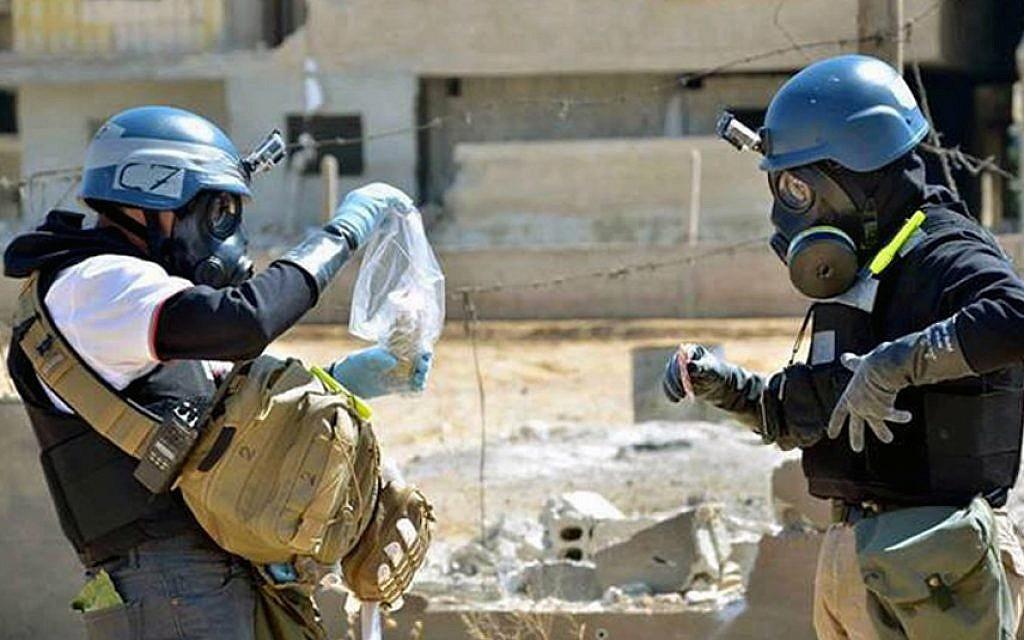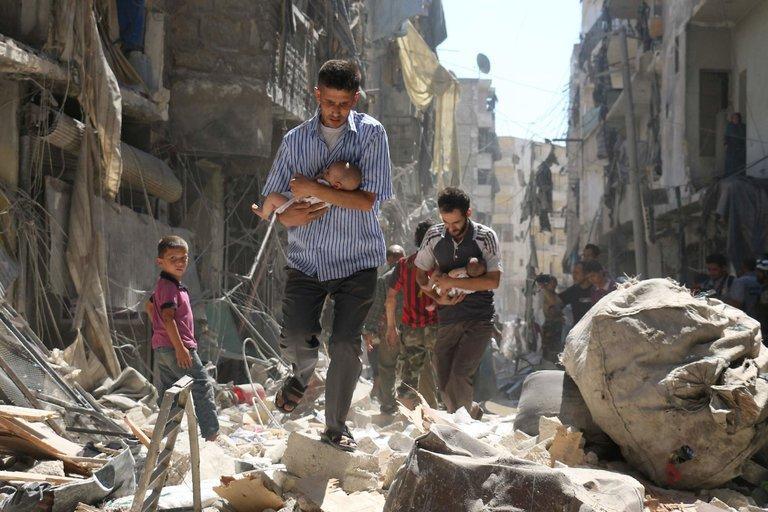U.S. strikes Syria
The U.S. takes swift action after suspected chemical attack by Assad regime
On Saturday, April 14, the United States, Britain and France carried out airstrikes against suspected Syrian chemical weapon facilities. The attack was prompted after Western nations accused Syrian President Bashar al-Assad of launching a chemical attack on the rebel-held suburb of Douma that killed 43 civilians on April 7. President Assad has repeatedly violated the Chemical Weapons Convention (CWC), a multilateral treaty that bans the use of chemical weapons.
The attack on Douma, which is suspected to have been organized by President Assad, occured when two bombs containing chemicals were allegedly dropped several hours apart on two separate locations in Douma. In a report from the Syrian American Medical Society (SAMS), more than 500 people were rushed to local hospitals with severe symptoms. Symptoms included burning eyes, trouble breathing, foaming of the mouth and the "emission of a chlorine-like odor."The Syrian government and its ally in the seven-year war, Russia, denied responsibility for the attack. They instead blamed the strike on rebel forces and argued that the attack was a hoax. Chemical weapons investigators from the Organization for the Prohibition of Chemical Weapons (OPCW) were sent to Douma on an independent investigation to find out what chemicals, if any, were used in the April 7 attack.
Due to multiple delays, the OPCW experts reached Douma only a week after they arrived in Syria. They were able to collect various samples for analysis, but the inability of experts to visit the site for days raised suspicion among Western powers, who assumed that the Syrian government was covering up evidence of chemical munitions.
The OPCW team has sent the samples to the Netherlands for analysis, but has yet to determine whether or not banned substances were used in the April 7 attack. "The OPCW will evaluate the situation and consider future steps including another possible visit to Douma," the organization said. According to CBC News, Douma was the final rebel-held suburb that the government had to seize in order to take back control of all the eastern Ghouta suburbs of Damascus. The Jaish al-Islam group that held Douma for seven years surrendered the suburb to the government days after the apparent attack.
A week after the suspected attack, two U.S. officials told NBC News that blood and urine samples from victims of the attack suggested the presence of both chlorine gas and an unnamed nerve agent. Although President Assad agreed to eliminate Syria's chemical weapons stockpile in the Chemical Weapons Convention, chemical warfare still shows no sign of ending even after seven years of civil war and unrest.
Nikki Haley, a U.S. ambassador, told CBS News in a statement that it is crucial for the U.S. to send a strong message condemning the use of chemical weapons. Haley said that in the near future, sanctions will be targeted at Russian companies that have helped the Assad regime make and deploy chemical weapons. "You will see that Russian sanctions will be coming down," Haley said.
Tags: Syria Syrian civil war United States airstrikes chemical warfare
Arthi Thyagarajan. Hi I'm Arthi Thyagarajan! I am super excited to be writing for Silver Chips Online this year. I also enjoy playing soccer on my school team and watching Game of Thrones. More »
Comments
No comments.
Please ensure that all comments are mature and responsible; they will go through moderation.

